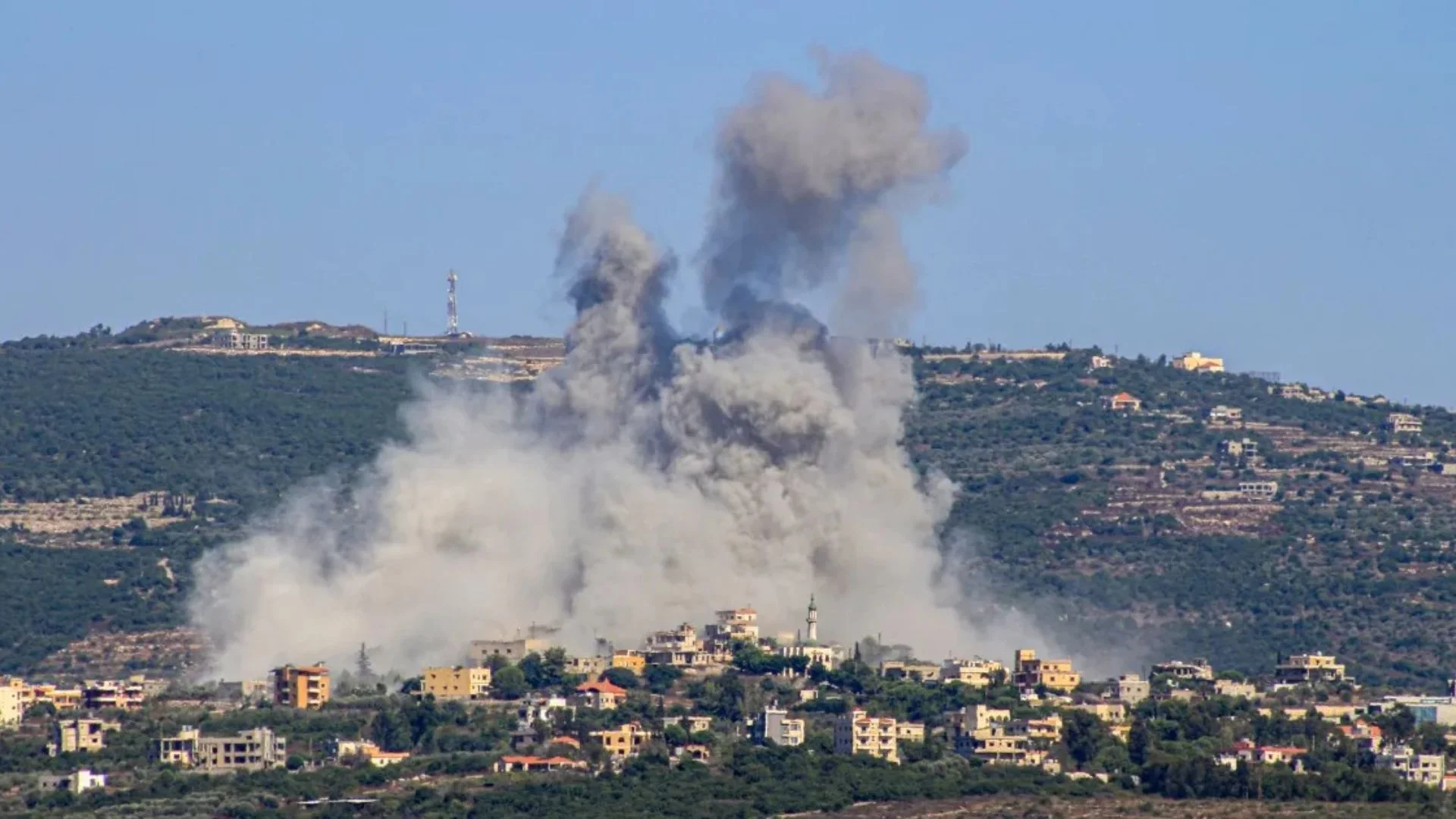Israel has intensified its military operations in southern Lebanon, launching extensive airstrikes in response to Hezbollah’s deepest rocket attacks into Israeli territory since the onset of the Gaza war. On Saturday night, the Israeli Defense Forces (IDF) reported two waves of airstrikes, targeting approximately 400 sites in southern Lebanon, as air raid sirens blared across northern Israel. The IDF noted that 10 rockets were fired from Lebanon, with most intercepted, though one man was lightly injured by shrapnel in the Galilee region.
Hezbollah Strikes Ramat David Airbase with Missiles
Hezbollah claimed responsibility for targeting Israel’s Ramat David airbase near Haifa, located roughly 50 kilometers from the Lebanon-Israel border. The attack marks the furthest Hezbollah has struck into Israel, escalating concerns of a broader conflict. Israeli Defense Minister Yoav Gallant, addressing air force personnel at the same airbase earlier in the week, acknowledged a “new phase” in Israel’s confrontation with Hezbollah.
The conflict intensified after Israeli airstrikes killed senior Hezbollah commander Ibrahim Aqil and 37 others, including women and children, in Beirut on Friday. In response, Hezbollah ramped up its retaliatory strikes, leading to increased fears of a full-blown war in the region. Lebanon has seen more than 500 deaths from Israeli strikes, mostly Hezbollah militants, but also over 100 civilians. In Israel, border areas have turned into a buffer zone, with frequent Hezbollah attacks killing both soldiers and civilians.
US and UN Urge De-escalation
The United States and the United Nations have called for restraint, with the US Embassy in Beirut urging American citizens to leave Lebanon while commercial flights remain available. Amid the escalating tensions, several airlines, including Air France and Turkish Airlines, have suspended flights to Beirut.
Despite the growing conflict in the north, Israel has not reduced its military campaign in Gaza, where it continues targeting Hamas strongholds, including a school turned shelter, killing 22 civilians.







